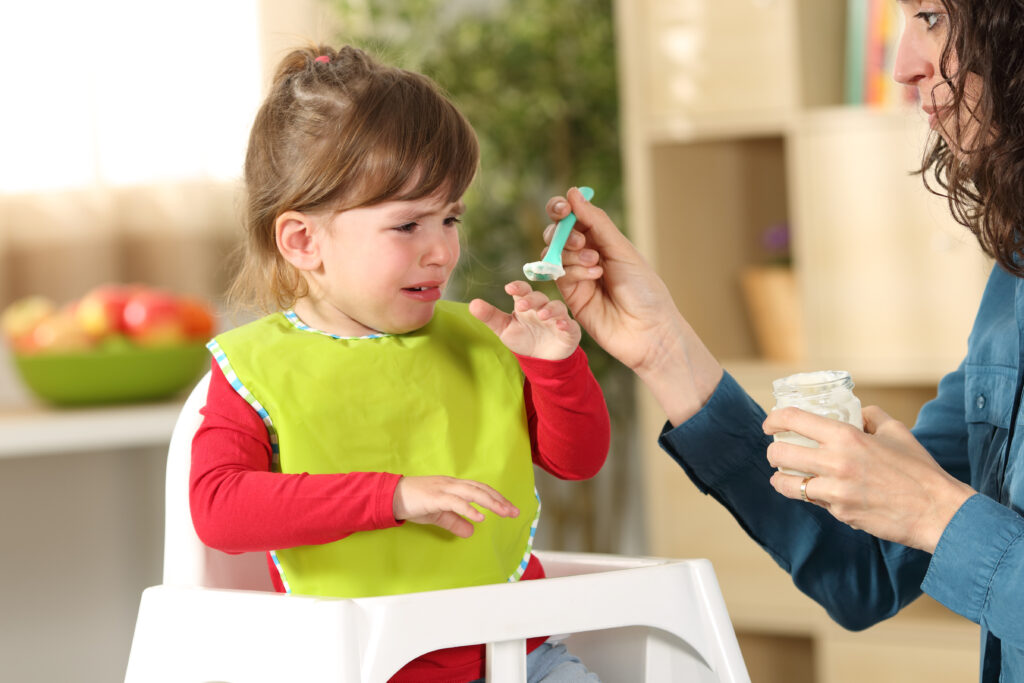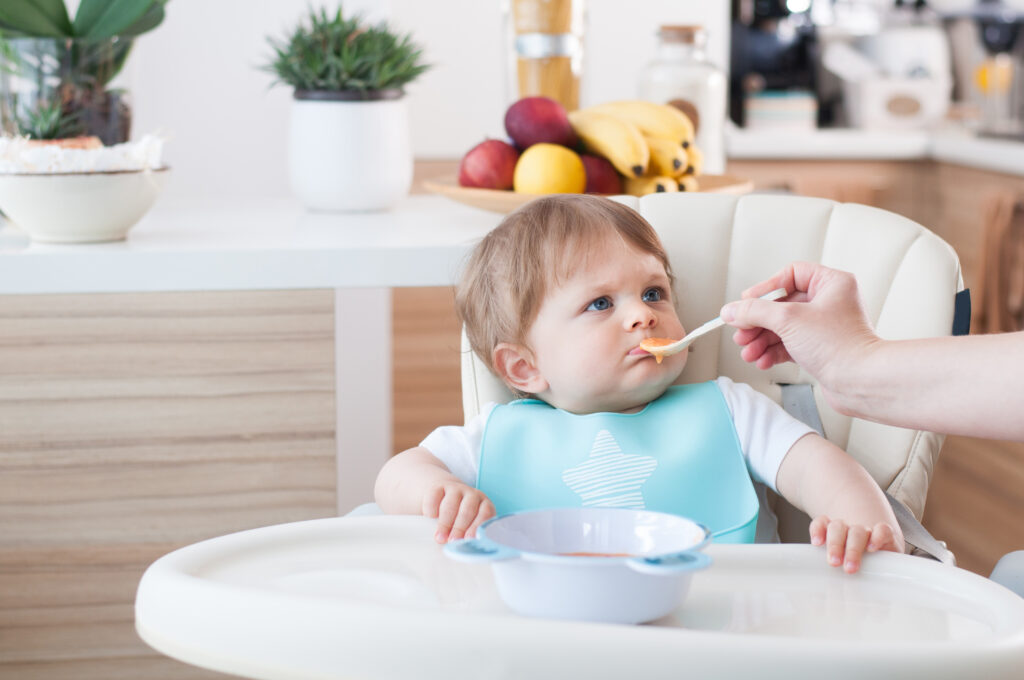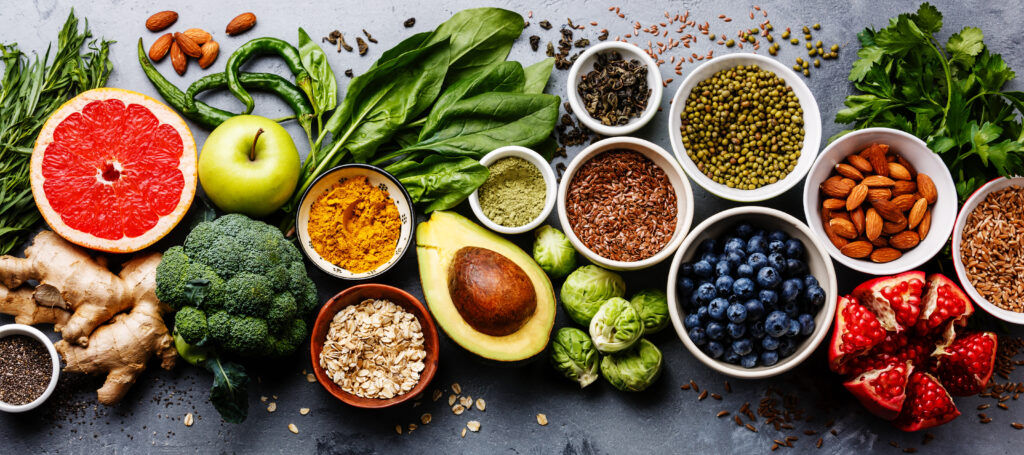Nutrient needs in the early years are 4 – 5 times greater than for an adult. Some nutritional knowledge is therefore essential in selecting a nutritious diet for your youngster. Eating a range of foods from the main food groups, with three meals a day plus 2 – 3 planned snacks means that food is never far from a mum’s mind! In a recent survey from the Infant & Toddler Forum, 73% of mums felt that their toddler wasn’t eating enough, yet childhood obesity is increasing. Think quality NOT quantity.
Essential fats for brain growth and development
Young children need a range of healthy fats and oils for developing tissues in the brain and nervous system. Fats provide a concentrated source of energy, to help get enough calories into smaller tummies. Whole milk (4%) and dairy products should be used unless excessive weight gain is a problem. They contain more vitamins A and D needed for developing bones, muscles and the immune system. The body cannot made it’s own essential fats so depend on a dietary supply. Choose oily fish every week, nut butters, avocados, seeds and whole-grains cereals to provide those essential fats.
Getting the balance right with fibre
Too much fibre for young children can fill them up, reduce absorption of important nutrients like iron and zinc and reduce their appetite. On the other hand fibrous foods are less processed and contain their own essential nutrients; feed the good bacteria in our lower gut to maintain good gut health. Think Goldilocks! – not too much not too little, but just right! Include small portions of pulses, beans, nuts and seeds regularly.
Swap the sugars
Sugar contains “empty” calories and causes tooth decay. Simply avoid it where possible.
Should I use salt?
Too much added salt is not suitable for young children. Most dietary salt is found in pre-packed foods, convenience foods and savoury snacks like crisps. Home cooked food is naturally lower in salt, so helps to keep salt intake lower.
Need further advice? Contact Carine to make an appointment.







